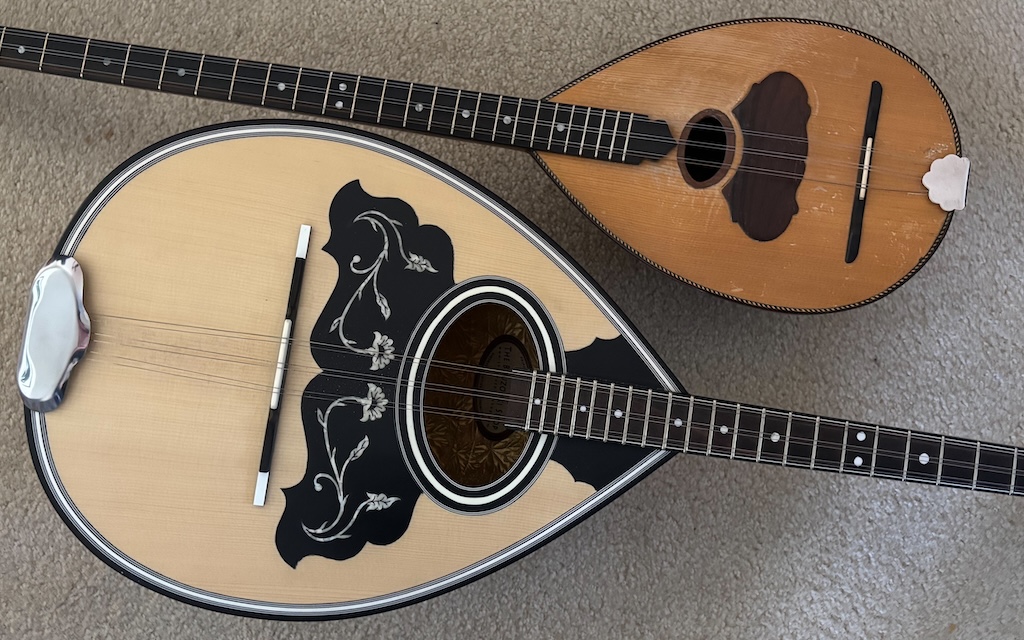This may not sound much like a rebetiko song: plinky mandolins, piano and a male chorus are unlike what has come into the rebetiko repertoire from the mid-1930s when it was recorded.
It has some significance though: Estoudiantina was the recreation in Athens of a citizens orchestra that had been essential to developing the skills of dozens of the Smyrna-based musicians who came to Athens and changed the face of urban Greek music through rebetiko.
Ta Politikia (the Greek name for the group) formed in 1898 in Smyrna. It had a fluid membership of as many as three dozen musicians and singers and performed concerts around Europe until it was disbanded in 1921 in the face of coming end of the Greek city of Smyrna. Ta Politikia was one of a number of groups formed in Asia Minor that combined eastern and western influences (hence the mandolin as a key ingredient in the mix). While serving as performing orchestras, they were also the training ground for singers and musicians.
Many of those singers and musicians wound up in Athens after the 1922-’23 population exchange. Their musical skills were in demand for the popular cafe amans and, a few years later, for the burgeoning Greek recording industry. Among the former members of the group who were central to Smyrneika rebetiko were composers Spyros Peristeris, Panagiotis Tountas and Vangelis Papazoglou (who wrote the song Deceptive Woman). This version of Ta Politikia, reconstituted in Athens, was an eight-member group that included Peristeris.
Interestingly, the concept of the Estoudiantina has been resurrected in Greece, with the Estoudiantina of New Ionia, an area of Athens, originally settled by refugees from Asia Minor. It combines a fluid group of 30 professional and amateur musicians, and has performed throughout Greece, backing some of today’s best known performers, and on a number of recordings, produced by Greek megastar George Dalaras.
Deceptive woman was recorded by Ta Politikia in 1935, a year after it had been recorded by Roza Eskenazi, by Stellakis Perpiniades and by Kakia Mendri.











Leave a Reply